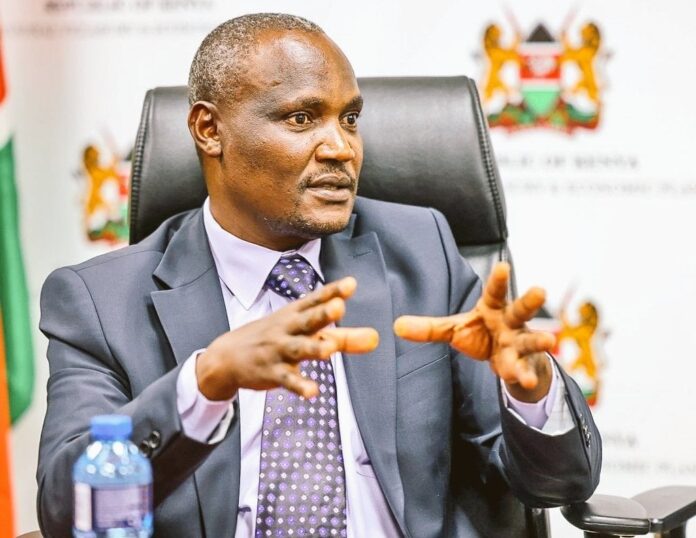On March 5, 2025, Treasury Cabinet Secretary John Mbadi made a bold declaration in the Senate: no government payments will be processed for any supplier who is not registered onthe state’s new Electronic Government Procurement (e‑GP) system.
The announcement underlines the government’s determined push to fully digitise procurement and eliminate fraud and inefficiencies traditionally associated with manual tendering processes.
Speaking during a Senate committee meeting, Mbadi emphasised that as of July 1, 2025, all procurement activities including tender tenders, evaluation, awarding and contract management must be transacted exclusively via the e‑GP platform.
He warned that any accounts payable outside the system will be automatically blocked, effectively halting payments. “We will only pay those who have gone through the system,” Mbadi affirmed, signalling that strict compliance will be the rule, not the exception.
Mbadi also issued stern guidance to Principal Secretaries and accounting officers across all Ministries, Departments and Agencies (MDAs).
He demanded immediate onboarding of their departments and suppliers to the system, stressing that any delay or resistance would lead to professional consequences. “If they resist the eGP reform, I will recommend to the President to reconsider their positions,” the CS declared.
The implementation follows a directive from President William Ruto, who in November 2024 mandated the Treasury to deliver a functional national e‑GP system by early 2025. Despite initial delays pushed from March to July the Treasury is now set to activate the system across national and county government procurement.
Registration began in June, with webinars, help desks, and in-person support at Huduma Centres and the Treasury offices to assist suppliers.
This shift is projected to yield annual savings of over Ksh50 billion, Mbadi said, as it locks out procurement cartels, standardises tender procedures and minimizes human discretion and discretionary interference.
Payments will be fully integrated with the government’s IFMIS platform, delivering traceable audit trails and risk mitigation against ghost suppliers and inflated contracts.
Analysts welcomed the move, noting that e‑procurement is a key pillar of the current Public Finance Management reforms. It aligns with zero-based budgeting, digital accounting, and pension digitization measures that collectively aim to plug leakages, enhance transparency, and ensure efficient public spending.
With the e‑GP system scheduled for full rollout by July 2025, the Treasury’s position is unequivocal: any supplier that fails to register will be deprived of government contracts and payments.
As Kenya races to digitise its procurement operations, the CS has made clear that compliance is mandatory, timely and non‑negotiable firmly placing e‑procurement at the core of government contracting and public accountability.
Written By Ian Maleve



















